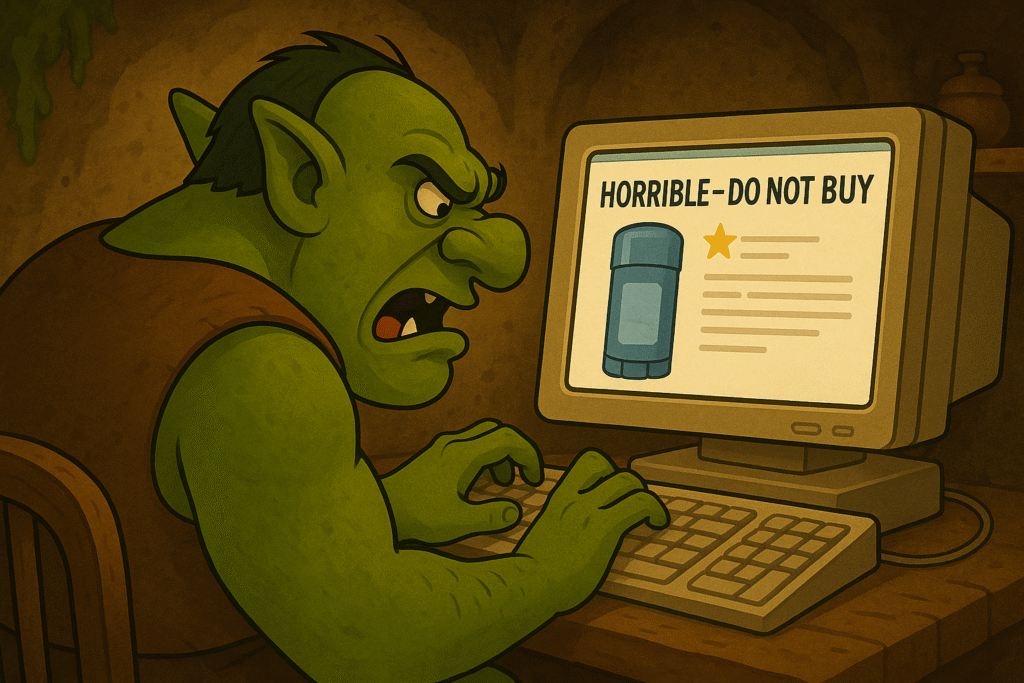
Why I avoid deleting nasty comments and celebrate the free engagement — BUT where I draw the line
Last week, a troll showed up on a client’s YouTube video with a personal attack that made my blood boil.
“If I had ears like that, I’d stay off camera.”
My finger hovered over the delete button.
This kind of garbage has nothing to do with the product and everything to do with someone having a terrible day. (And trying to create one for someone else.)
I deleted it.
Not because I didn’t care about engagement metrics or algorithm performance.
Because the person being attacked is sensitive about their appearance, and no amount of strategic thinking justifies letting someone get hurt for marketing purposes.
But here’s what I’ve learned after managing hundreds of product launches:
Most negative comments are actually working for you, whether the trolls know it or not.
Every comment — even critical ones about your product — signals to algorithms that your content is engaging.
Controversy drives more engagement than praise. And buyers expect to see negative feedback, so a feed full of only glowing commentary actually reduces credibility.
The key is knowing which comments serve your business and which just serve cruelty.
Product criticism?
Leave it up. “This is overpriced snake oil” tells your ideal customers that someone with different values exists in your audience — which actually helps the right people self-select.
Personal attacks on appearance, family, or other irrelevant characteristics?
Delete without hesitation.
Think about your own buying behavior. When you’re researching a product, you absolutely read the negative reviews.
But you’re not necessarily looking for reasons NOT to buy. You are looking for circumstances where buyers like you might be disappointed.
You automatically discard the silly complaints — the person angry about shipping delays caused by a weather event, or someone giving one star because “the box was all bashed in.”
You focus on reviews from people who seem like you, facing similar challenges, with comparable expectations.
In I Need That, I discuss how social proof works both ways — negative feedback can actually increase trust when it’s clearly unreasonable or comes from obviously wrong-fit customers.
Product Payoff: My teenager’s beloved game (sadly for all the wrong reasons) Cards Against Humanity embraces product criticism as part of their brand identity. Their Amazon reviews include outraged customers calling the game “offensive” and “inappropriate” — exactly the social proof their target audience needs to confirm they’re buying something genuinely edgy. These negative reviews don’t even hurt sales; they increase them by filtering out wrong-fit customers (who will return the product) while attracting people who WANT something provocative.
Your comment strategy: Respond professionally to legitimate product concerns and ignore product-related trolling completely. But protect your team and customers from personal attacks without hesitation.
The goal should not be universal approval, and maybe not even maximum engagement. Best to cultivate an environment where the RIGHT conversations can happen without real harm.
How do you balance strategic thinking with protecting people’s feelings in your business decisions?
Rap that reply arrow and share your approach to handling the line between useful criticism and harmful attacks. I want to know what has worked for YOU!
Or reach out to my team of product strategy experts at Graphos Product.
